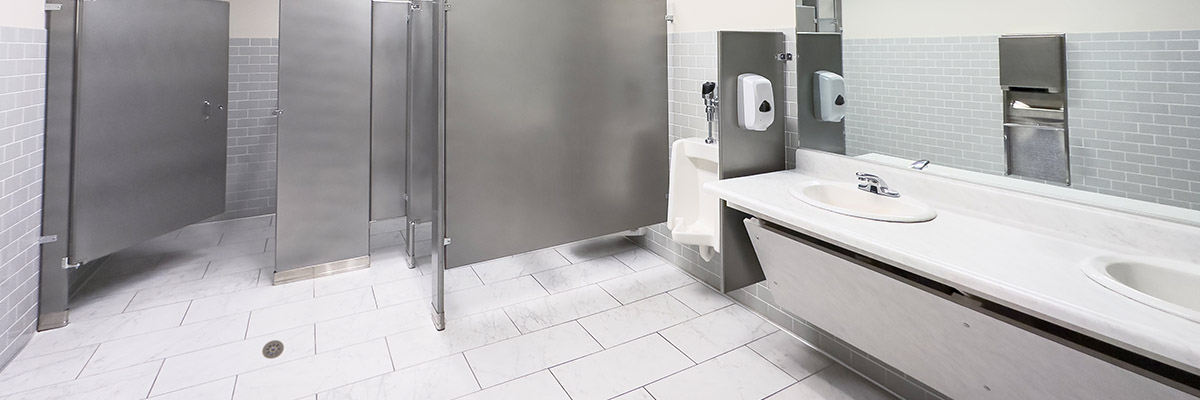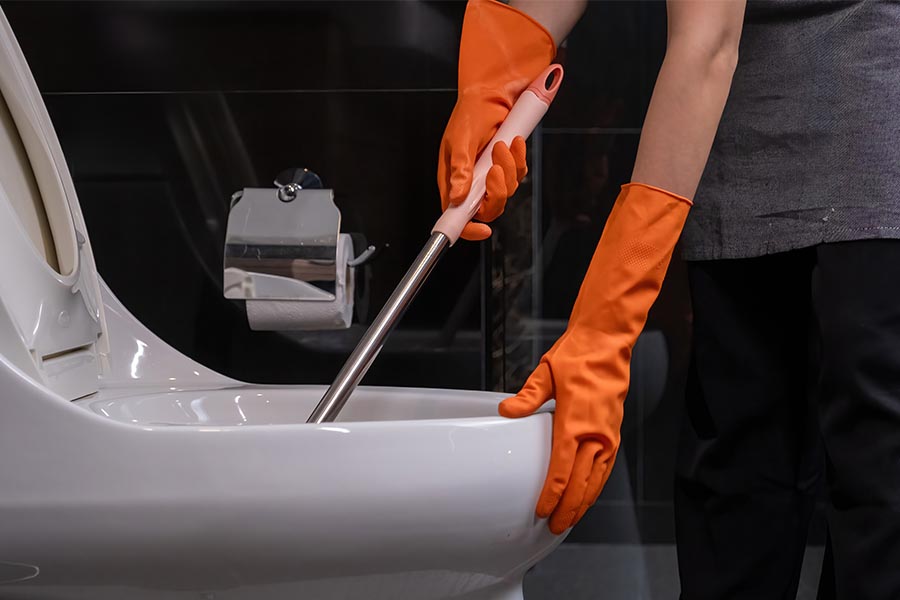Understanding Restroom Odors: Causes and Effective Solutions
Restroom odors can be a source of frustration for facility managers tasked with maintaining cleanliness and comfort in public and commercial spaces. These unpleasant smells not only affect the user experience but can also reflect on the professionalism of the establishment. Understanding the underlying causes of these odors is crucial for effective management.

In this article, we will explore the causes of restroom odors and provide effective strategies to mitigate them. We will also discuss when persistent odors may require professional plumbing assistance and how products from Hillyard can help maintain a fresher restroom environment.
What Causes Restroom Odors?
Restroom odors are a common issue in public and commercial spaces. They can be attributed to different sources, including bacteria, urine, and sewer gases. These unpleasant smells not only affect the perception of cleanliness but can also indicate underlying hygiene problems. Facility managers can maintain a cleaner, fresher restroom environment by identifying and addressing the root causes, such as bacteria buildup, improperly maintained fixtures, and sewer-related issues.
Bacteria Buildup in Grout
Due to its porous composition of cement, water, and sand, grout quickly absorbs urine, moisture, and other contaminants, making it a prime area for odor generation. The same properties that make grout a durable filler create an environment where bacteria, mold, and mildew flourish, leading to persistent and unpleasant bathroom odors. Traditional mopping may worsen the problem, as it spreads contaminants rather than removes them. To effectively combat this, facility managers are turning to bioactive microbial cleaning products designed to penetrate grout's rough surface and break down organic materials, thereby neutralizing odors at their source.
Fix #1: Use Liquid Enzyme II on Grouted Floors to Eliminate Odors
Liquid Enzyme II - Liquid Enzyme II effectively deodorizes grout lines by digesting organic waste and odor-causing bacteria trapped in porous surfaces. Its live bacterial suspension breaks down fats, carbohydrates, and proteins naturally, eliminating the source of odors deep within the grout. Regular application helps maintain freshness and prevents the buildup of malodors in heavily trafficked areas.
Fix #2: Add Take Down® to Your Cleaning Solution
Take Down - Take Down can be added to cleaning solutions to effectively eliminate odors from grout by using natural bacteria and enzymes that break down odor-causing substances. When used as an additive, it targets the source of odors in grout lines, ensuring a deep and lasting clean. Available in three pleasant fragrances—Cherry, Green Apple, and Fresh Linen—Take Down not only removes odors but also leaves a fresh scent behind. This makes it an ideal choice for deodorizing grout in restrooms, kitchens, and other high-traffic areas.
Ineffective Toilet Cleaning Procedures
Toilets and urinals can be common sources of unpleasant odors, often caused by the buildup of minerals, rust, mold, and odor-causing bacteria—especially in hard-to-reach areas like beneath the rim. To effectively eliminate these odors, it’s crucial to remove urine deposits and bacteria at their source.
Fix #3: Use Extra Strength CSP Cleaner on Toilets.
Extra Strength CSP Acid Restroom Cleaner - Effective, versatile, phosphoric acid-based cleaner clings to both horizontal and vertical surfaces and delivers superior cleaning action. Removes hard water spots, soap film, rust and oily residue with ease. Cleans a wide variety of surfaces including ceramic, stainless steel and porcelain. Apply this cleaner with the dispenser cap. Rub all over the surface of the bowl and under the flush ring using a bowl swab. Allow it to dwell for 15 minutes on heavy buildups and flush it away.

Bacteria in Drains
Floor drains in commercial restrooms are notorious for becoming breeding grounds for bacteria when neglected or when the drain trap water evaporates. Despite common beliefs, the mere act of flushing cleaning solutions and water down these drains does not ensure cleanliness; bacteria and mold may still thrive. Hence, routine enzyme treatments can be invaluable. These treatments digest both the bacteria and their food sources, resolving odor issues and maintaining freshness.
Fix #4: Treat drains with Liquid Enzyme II
Liquid Enzyme II - Liquid Enzyme II is highly effective for deodorizing drains by breaking down grease, fats, and organic waste with its powerful bacteria and enzymes. By adding 4 ounces to drains twice weekly, it digests the buildup that causes unpleasant odors, leaving drains fresh and odor-free. The live bacteria in the solution continue to work long after application, converting waste into harmless byproducts like water and carbon dioxide. This natural and non-toxic solution is perfect for maintaining odor control in kitchen sinks, bathroom drains, and other frequently used areas.
Evaporated Water in P-Traps
A dry P-trap, typically due to infrequent use, can be a hidden source of sewage smell in restrooms, as the water seal that blocks sewer gases depletes. The simple act of running water through fixtures can replenish this barrier, preventing the escape of sewer gases. After extended periods of non-use, reactivating the P-trap by pouring hot water down the drain can immediately alleviate foul odors. To avoid such issues, it's advised to periodically flush water through infrequently used drains, thereby maintaining the water seal and precluding the development of odors.
Proper Ventilation Can Help
Proper ventilation is essential in combating persistent restroom odors and preventing mold and mildew growth. Installing exhaust fans helps improve air circulation, removing moisture and controlling smells. In poorly ventilated restrooms, moisture buildup can worsen odor problems, highlighting the need for effective systems. Opening windows and using exhaust fans can immediately improve airflow and reduce odors. Facility managers should prioritize ventilation to maintain a fresh, odor-free environment.
Persistent Odors Might Mean You Need a Plumber
Persistent foul odors in restrooms can indicate plumbing issues, such as sewer gas leaks. Sewer odors from toilet bowls, floor drains, or fixtures suggest it’s time to call a plumber. Leaking pipes or sewer backups not only cause smells but also pose health risks and require immediate repair. A faulty toilet wax ring may release a rotten egg smell, signaling a broken seal that needs prompt attention. Watch for persistent odors, rotten egg smells near toilets, and signs of water leakage, all of which may need professional help.
Hillyard Can Help You Eliminate Odors
Persistent restroom odors in commercial spaces can be both frustrating and disruptive for occupants and visitors. Hillyard's nationwide team of experts is ready to assist facility managers in addressing the root causes of these odors. Our professionals are trained to diagnose a wide range of issues, from bacteria-laden floor drains to neglected drain traps and toilet odors. When you contact us, our representatives will provide expert guidance on cleaning practices and products that eliminate odors at the source. Trust Hillyard to help maintain a fresh, hygienic environment in your restrooms with swift and effective solutions.